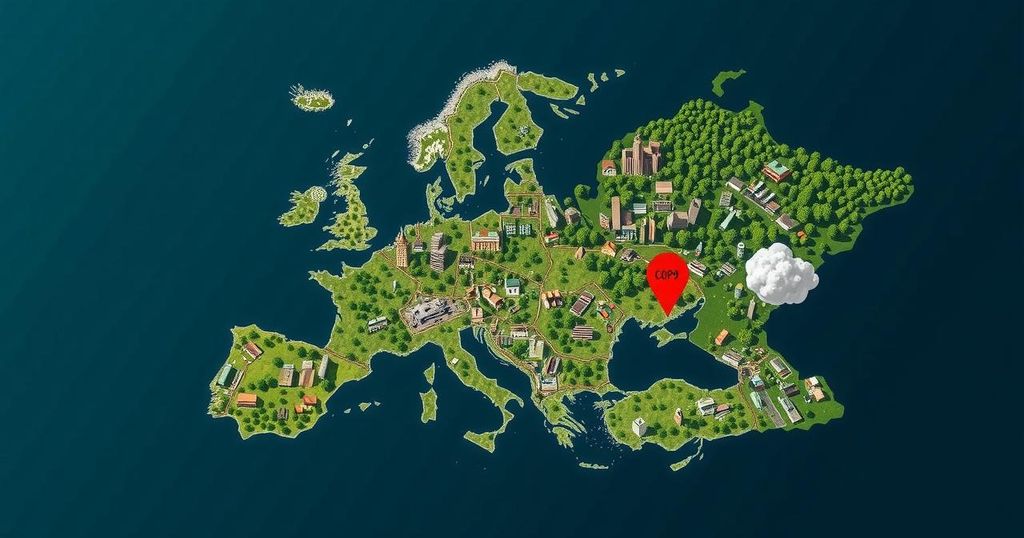COP29, occurring in Baku, Azerbaijan, from November 11 to 22, focuses on crucial climate issues, including financial aid for developing nations. The conference faces distractions from major political events, notably Donald Trump’s election, raising concerns about its effectiveness. Key discussions will revolve around establishing financial targets and national climate strategies, particularly in the context of rising global temperatures and climate change impact.
COP29, the 29th annual Conference of the Parties to the United Nations Framework Convention on Climate Change (UNFCCC), is a significant global summit addressing climate change. This year, the meeting will take place in Baku, Azerbaijan, from November 11 to 22. World leaders aim to discuss pivotal issues, including financial aid for developing nations to combat climate change and mitigate its adverse effects. However, the event occurs under a cloud of political distraction, such as the recent election of Donald Trump in the United States, whose administration is known for skepticism regarding climate initiatives. The conference seeks to establish a new financial target for developing countries as outlined in the Paris Agreement, which aims to limit global temperature rise to 1.5 degrees Celsius. Current discussions will focus on generating over $1 trillion per year by 2030 to assist nations disproportionately affected by climate change. Attendees are expected to propose updated national climate strategies, with many expressing concern that the absence of prominent leaders could stymie meaningful progress. Additionally, Azerbaijan’s ongoing expansion of gas production raises questions about the sincerity of global efforts to shift away from fossil fuels.
The COP meetings are a crucial platform for international negotiations on climate change policy, involving almost 200 countries that have agreed to the UNFCCC. The COP serves as a decision-making body where member nations discuss strategies to combat climate change, review progress, and agree on financial and technical assistance, particularly aimed at supporting vulnerable countries. This year’s COP29 in Azerbaijan highlights significant challenges, particularly the need for financing solutions amidst the backdrop of rising global temperatures and increasing climate-related disasters. The presence of controversial host country—Azerbaijan, with its poor human rights record and ongoing gas production expansion—adds another layer of complexity to the discussions.
In conclusion, COP29 represents a critical moment in global climate negotiations, aimed at bolstering support for developing nations and tackling pressing financial concerns. Despite notable absences among global leaders, the conference strives to address mechanisms for climate finance while grappling with the inherent challenges posed by current geopolitical dynamics and the host nation’s energy ambitions. The outcomes of this summit could significantly influence the trajectory of international climate action and financial commitments going forward, especially in light of the urgent need to address climate change effectively.
Original Source: www.bbc.co.uk






